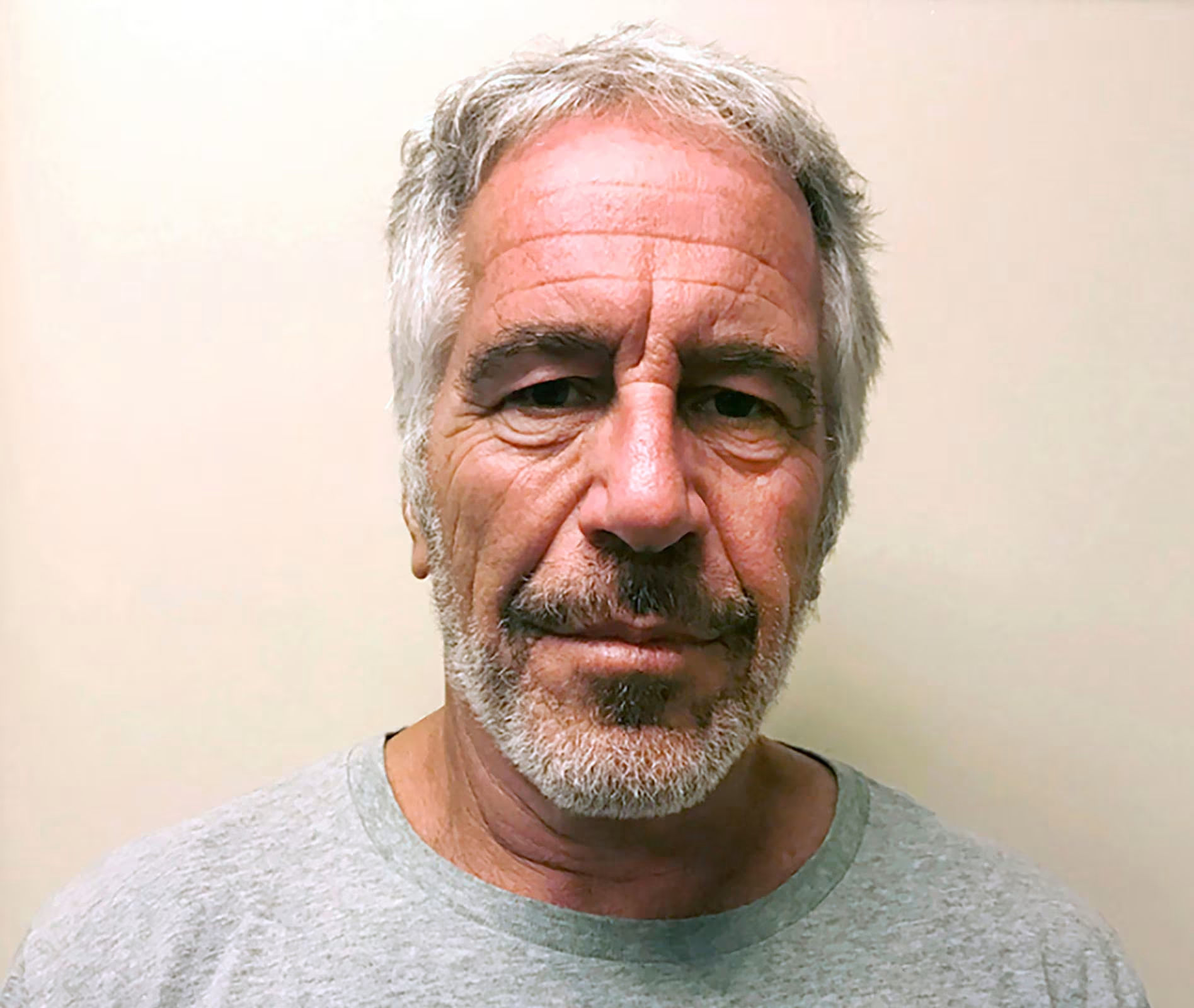
Meet Joe Gruters, the Trump ally now at the helm of Republican National Committee
Entities mentioned:
- Joe Gruters: Loyalty, Ambition, Power
- Donald Trump: Power, Control, Influence
- Republican National Committee: Influence, Power, Unity
- Susie Wiles: Loyalty, Ambition, Influence
- Michael Whatley: Ambition, Power, Loyalty
- Ron DeSantis: Ambition, Competitive spirit, Power
Article Assessment:
Credibility Score: 70/100
Bias Rating: 65/100 (Lean Right)
Sentiment Score: 65/100
Authoritarianism Risk: 55/100 (Mixed/Neutral)
Bias Analysis:
The article leans right, evidenced by its focus on Trump's influence and positive framing of his control over the RNC. While it includes some factual reporting, the language used ('MAGA Warrior', 'RED AS RED CAN BE!') suggests a favorable view of Trump's impact on the party.
Key metric: Political Party Cohesion
As a social scientist, I analyze that this article highlights the consolidation of power within the Republican Party under Donald Trump's influence. The unanimous election of Joe Gruters, a Trump ally, as RNC chair demonstrates the party's alignment with Trump's vision and leadership. This development suggests a strengthening of party cohesion around Trump's ideology and political strategy, potentially impacting the party's approach to the upcoming midterm elections and beyond. The mention of Gruters' clash with Ron DeSantis indicates potential internal conflicts within the party, especially among Florida-based politicians, which could affect the party's unity and strategy in the long term.

MIKE POMPEO: How Trump can save Lebanon from Iran's influence
Entities mentioned:
- Donald Trump: Power, Influence, Legacy
- Hezbollah: Control, Power, Loyalty
- Iran: Influence, Control, Power
- Lebanese Armed Forces: Duty, Unity, Security
- United Nations Interim Force in Lebanon (UNIFIL): Obligation, Security, Duty
- Mike Pompeo: Influence, Righteousness, Security
Article Assessment:
Credibility Score: 65/100
Bias Rating: 75/100 (Lean Right)
Sentiment Score: 35/100
Authoritarianism Risk: 65/100 (Authoritarian Tendencies)
Bias Analysis:
The article leans right due to its hawkish foreign policy stance and strong pro-Trump, anti-Iran rhetoric. It presents a one-sided view of the situation in Lebanon, focusing solely on Iranian influence without acknowledging other complex factors.
Key metric: US Global Influence Index
As a social scientist, I analyze that this article advocates for a significant shift in US foreign policy towards Lebanon, emphasizing a more assertive approach to counter Iranian influence through Hezbollah. The author, Mike Pompeo, argues for dismantling UNIFIL, strengthening the Lebanese Armed Forces, and actively disrupting Iran's weapons pipeline to Lebanon. This proposed strategy could potentially increase US influence in the region but also risks escalating tensions. The focus on military solutions over diplomatic engagement reflects a hawkish foreign policy stance, which could impact the US Global Influence Index by potentially strengthening US hard power in the Middle East while possibly diminishing soft power and diplomatic leverage in the international community.

FBI raid of John Bolton's home reportedly linked to classified documents probe
Entities mentioned:
- John Bolton: Self-preservation, Influence, Recognition
- FBI: Justice, Duty, Professional pride
- Donald Trump: Revenge, Power, Control
- Kash Patel: Duty, Loyalty, Professional pride
- Dan Bongino: Justice, Duty, Professional pride
- JD Vance: Loyalty, Duty, Influence
Article Assessment:
Credibility Score: 65/100
Bias Rating: 55/100 (Center)
Sentiment Score: 30/100
Authoritarianism Risk: 45/100 (Mixed/Neutral)
Bias Analysis:
The article presents multiple viewpoints and sources, including both pro-Trump and anti-Trump perspectives. However, there's a slight lean towards emphasizing Trump's negative comments about Bolton, which could be seen as slightly center-right in framing.
Key metric: Government Transparency and Accountability
As a social scientist, I analyze that this article highlights ongoing tensions between political figures and government institutions, particularly concerning the handling of classified information. The raid on John Bolton's properties suggests a continued focus on document security and potential mishandling of sensitive information by former officials. This event may impact public perception of government transparency and accountability, as it demonstrates that even high-ranking former officials are subject to investigation. The involvement of the FBI and the public statements by current administration officials underscore the seriousness of the matter. However, the political context, including Bolton's criticized relationship with Trump, adds complexity to the interpretation of these events. This situation may further polarize public opinion on government institutions and their impartiality in conducting investigations, potentially affecting trust in these institutions.

France summons US ambassador Charles Kushner over antisemitism allegations
Entities mentioned:
- France: Indignation, Justice, Moral outrage
- United States: Self-preservation, Influence, Control
- Charles Kushner: Duty, Self-preservation, Loyalty
Article Assessment:
Credibility Score: 70/100
Bias Rating: 50/100 (Center)
Sentiment Score: 35/100
Authoritarianism Risk: 30/100 (Generally Democratic)
Bias Analysis:
The article presents a factual headline without evident bias in its framing. The limited information provided maintains a neutral tone, not favoring either country's position or providing extensive context that might skew perception.
Key metric: US-France Diplomatic Relations
As a social scientist, I analyze that this incident highlights tensions in US-France relations over the sensitive issue of antisemitism. The summoning of a US ambassador is a significant diplomatic action, indicating France's serious concern about the allegations. This could potentially strain the typically strong alliance between the two nations, affecting cooperation on various international issues. The involvement of a high-profile figure like Charles Kushner adds complexity to the situation, given his connections to the previous US administration. This event may lead to increased scrutiny of both countries' approaches to combating antisemitism and could influence public opinion and policy discussions on both sides of the Atlantic.

Trump says law enforcement crackdown will ‘go on to other places’ during appearance at police facility in DC
Entities mentioned:
- Donald Trump: Power, Control, Recognition
- US Park Police: Duty, Security, Professional pride
- National Guard: Duty, Security, Obligation
- JD Vance: Loyalty, Ambition, Influence
- DC Residents: Freedom, Self-preservation, Indignation
Article Assessment:
Credibility Score: 70/100
Bias Rating: 55/100 (Center)
Sentiment Score: 35/100
Authoritarianism Risk: 65/100 (Authoritarian Tendencies)
Bias Analysis:
The article presents multiple viewpoints, including Trump's statements, opposition from DC residents, and critical perspectives. However, it leans slightly towards emphasizing concerns about the federal intervention, potentially reflecting a slight center-left bias.
Key metric: Public Trust in Government
As a social scientist, I analyze that this article highlights a significant tension between federal authority and local governance in Washington, DC. The expansion of federal law enforcement presence, including the National Guard, into city affairs without local support (79% opposition) indicates a potential erosion of public trust in government. This action, framed as a safety measure by the administration, is perceived differently by residents, suggesting a disconnect between federal intentions and local desires. The potential expansion to other cities could further strain federal-local relations and impact democratic norms, particularly in areas with strong local governance traditions. The emphasis on clearing homeless encampments without clear alternatives also raises concerns about social policy approaches and their impact on vulnerable populations.

Trump’s more conventional judicial nominees could give Alito and Thomas greater confidence to retire
Entities mentioned:
- Donald Trump: Power, Control, Legacy
- Federalist Society: Influence, Righteousness, Legacy
- Emil Bove: Loyalty, Ambition, Influence
- Wall Street Journal editorial page: Influence, Wariness, Professional pride
- Clarence Thomas: Legacy, Duty, Righteousness
- Samuel Alito: Legacy, Duty, Righteousness
- Stephen Kenny: Professional pride, Loyalty, Influence
- Mike Davis: Influence, Ambition, Righteousness
Article Assessment:
Credibility Score: 75/100
Bias Rating: 55/100 (Center)
Sentiment Score: 50/100
Authoritarianism Risk: 45/100 (Mixed/Neutral)
Bias Analysis:
The article presents multiple perspectives and includes critiques of Trump's approach, suggesting an attempt at balance. However, it predominantly features conservative voices and focuses on conservative strategy, indicating a slight center-right lean.
Key metric: Judicial Appointment Efficacy
As a social scientist, I analyze that this article highlights the complex interplay between political power, judicial appointments, and conservative legal ideology in the United States. Trump's second-term judicial nominations show a return to more conventional conservative picks after initial departures, potentially to encourage retirements of older conservative justices. This strategy aims to solidify a long-term conservative judicial legacy, impacting crucial social and political issues for decades. The article reveals tensions within conservative legal circles and the ongoing influence of the Federalist Society, despite Trump's public criticism. The focus on younger nominees and the emphasis on loyalty suggests a calculated approach to reshape the judiciary, with significant implications for the balance of power and interpretation of law in the U.S.

GOP governors are sending troops to DC. Their states have 10 cities with higher crime rates
Entities mentioned:
- Republican Governors: Loyalty, Political ambition, Influence
- President Donald Trump: Power, Control, Legacy
- DC Mayor Muriel Bowser: Duty, Security, Professional pride
- Democratic lawmakers and activists: Moral outrage, Justice, Righteousness
- Sen. Thom Tillis: Criticism, Duty, Wariness
Article Assessment:
Credibility Score: 75/100
Bias Rating: 40/100 (Lean Left)
Sentiment Score: 35/100
Authoritarianism Risk: 55/100 (Mixed/Neutral)
Bias Analysis:
The article leans slightly left, evidenced by its critical stance towards Republican governors and Trump's actions. It provides contrasting viewpoints but gives more space to critics of the troop deployments.
Key metric: Violent Crime Rate
As a social scientist, I analyze that this article highlights the complex interplay between federal and state politics, crime statistics, and resource allocation. The deployment of National Guard troops to Washington, DC by Republican governors, despite their own states having cities with higher crime rates, suggests political motivations rather than a genuine focus on addressing crime. This action may be seen as an attempt to support President Trump's agenda and gain political favor, rather than addressing local crime issues. The article raises questions about the effectiveness of such deployments in reducing crime and the potential negative impacts on the communities these troops are leaving behind. It also underscores the importance of data-driven policy-making and the need for a more nuanced approach to addressing crime that goes beyond simply increasing law enforcement presence.

The fight over California redistricting enters new phase
Entities mentioned:
- California Democrats: Power, Control, Influence
- Gov. Gavin Newsom: Ambition, Power, Influence
- President Donald Trump: Power, Control, Influence
- Republicans: Power, Control, Self-preservation
- Arnold Schwarzenegger: Legacy, Pride, Righteousness
- Charles Munger Jr.: Justice, Influence, Legacy
- Kevin McCarthy: Power, Loyalty, Self-preservation
- Barack Obama: Influence, Legacy, Righteousness
Article Assessment:
Credibility Score: 75/100
Bias Rating: 45/100 (Center)
Sentiment Score: 35/100
Authoritarianism Risk: 55/100 (Mixed/Neutral)
Bias Analysis:
The article presents multiple viewpoints and includes quotes from both Democratic and Republican sources. While it focuses more on Democratic efforts, it also covers Republican opposition and strategies, maintaining a relatively balanced approach.
Key metric: Electoral Integrity
As a social scientist, I analyze that this article highlights a significant battle over redistricting in California, which could have far-reaching implications for the balance of power in the U.S. House of Representatives. The proposed mid-decade redistricting by Democrats, led by Governor Newsom, is framed as a response to Republican efforts in other states, particularly Texas. This struggle underscores the intense partisan competition for control of the House and raises questions about the integrity of the electoral process. The involvement of high-profile figures from both parties, substantial financial commitments, and the compressed timeline all point to the high stakes of this issue. The potential impact on Electoral Integrity is substantial, as it challenges established norms around redistricting processes and could set a precedent for other states to follow suit, potentially leading to increased partisan gerrymandering and undermining public trust in fair representation.

Republican National Committee elects Trump-backed Joe Gruters as new chair
Entities mentioned:
- Joe Gruters: Ambition, Loyalty, Power
- Donald Trump: Power, Influence, Control
- Michael Whatley: Ambition, Loyalty, Professional pride
- Republican National Committee: Power, Influence, Unity
- Ron DeSantis: Ambition, Competitive spirit, Power
Article Assessment:
Credibility Score: 75/100
Bias Rating: 55/100 (Center)
Sentiment Score: 50/100
Authoritarianism Risk: 35/100 (Generally Democratic)
Bias Analysis:
The article presents a relatively balanced view of the RNC leadership change, including perspectives from different Republican figures. While it highlights Trump's influence, it also mentions potential conflicts and challenges, providing a nuanced picture of party dynamics.
Key metric: Political Party Cohesion
As a social scientist, I analyze that this article highlights significant shifts in Republican Party leadership, with implications for party unity and strategy. The election of Joe Gruters as RNC chair, backed by former President Trump, reinforces Trump's continued influence within the party. The transition from Whatley to Gruters, both Trump allies, suggests a consolidation of pro-Trump factions in key party positions. This could impact the party's direction, potentially alienating moderate Republicans or those aligned with other potential presidential candidates like Ron DeSantis. The mention of tension between Gruters and DeSantis adds another layer of complexity to intra-party dynamics, which could affect the party's cohesion and strategy in upcoming elections. The RNC's strong financial position provides a solid foundation for the new leadership, but the challenge will be in maintaining unity and effectively leveraging these resources in a potentially divisive primary season and general election.

‘Keeping it totally open’: Trump says he supports Justice Department sending Epstein files to House Oversight panel
Entities mentioned:
- Donald Trump: Self-preservation, Control, Influence
- Justice Department: Duty, Transparency, Justice
- House Oversight Committee: Justice, Transparency, Duty
- Jeffrey Epstein: Power, Control, Self-preservation
- Pam Bondi: Duty, Loyalty, Professional pride
- James Comer: Transparency, Justice, Duty
- Mike Johnson: Caution, Control, Political calculation
Article Assessment:
Credibility Score: 70/100
Bias Rating: 55/100 (Center)
Sentiment Score: 45/100
Authoritarianism Risk: 30/100 (Generally Democratic)
Bias Analysis:
The article presents multiple perspectives, including Trump's views and the committee's approach, indicating an attempt at balanced reporting. However, the inclusion of Trump's 'Democrat hoax' comment without immediate fact-checking slightly tilts the narrative.
Key metric: Government Transparency and Accountability
As a social scientist, I analyze that this article highlights the complex interplay between government transparency, political motivations, and the protection of sensitive information. The release of the Epstein files represents a significant test of the balance between public interest and individual privacy. Trump's support for transparency, while simultaneously dismissing the issue as a 'Democrat hoax,' reveals the politicization of the matter. The House Oversight Committee's approach demonstrates a cautious stance, prioritizing victim protection while aiming for transparency. This situation impacts government accountability by potentially exposing connections between high-profile individuals and Epstein, which could have far-reaching political implications. The delay in releasing the files and the careful review process indicate the sensitive nature of the information and its potential to affect public trust in institutions and political figures.